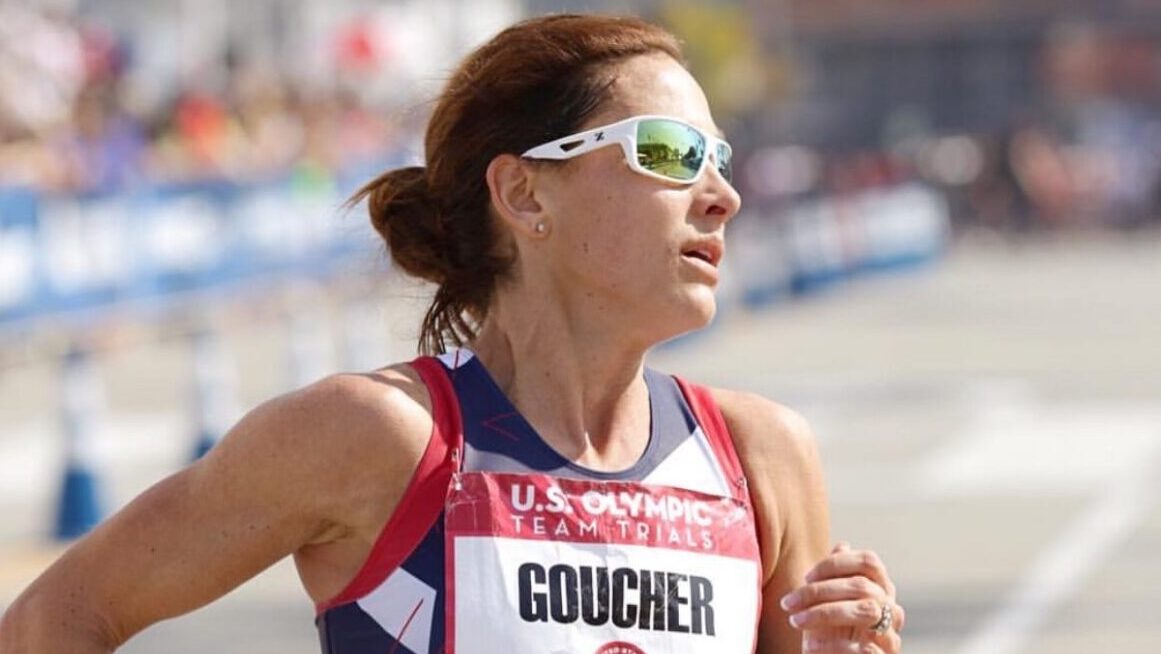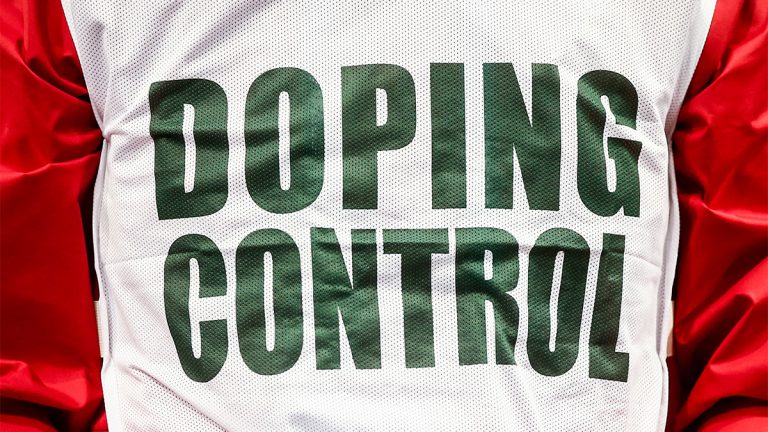Athletes push for brands and competitors to commit to clean sport
Why this matters
Coming back to sport, many might view this year's compressed time frame as an excuse to use performance-enhancing drugs to get that needed boost to return to peak performance. But as sport struggles with the pandemic, could this be the moment that a return to sport is a clean one?
The recent ESPN documentary “Lance” depicts cycling in the 1990s and early 2000s as a cutthroat sport where performance enhancing drug (PED) use was ubiquitous. PED users and their doctors were miles ahead of the sport’s testing protocols, and athletes and support staff who spoke the truth saw their reputations attacked and careers destroyed. While cyclists who doped excelled and won every major competition, clean athletes were left behind, never receiving the accolades and financial success of those who doped.
Cycling is not the only sport where PED use harms clean athletes and the sport’s image. From Major League Baseball to Olympic sports, athletes who test positive for PEDs serve suspensions and may have to pay fines, return medals, or have records erased, but they often return to competition without losing corporate sponsorships or having to pay back salaries, endorsement earnings, or prize money.
They often walk away richer because they chose to use PEDs.
Professional athletes earn a significant portion of their incomes from endorsements, and athletes in individual sports like track and field depend on endorsement deals. Shoe and apparel companies offer bigger endorsement deals to athletes who medal at the Olympics or World Championships. If a clean sprinter finishes fourth in the 100-meter dash at a World Championships or Olympics behind an athlete using PEDs, the clean athlete misses out on not only the euphoria of a medal ceremony but also significant sponsorship money. If a linebacker is not drafted by an NFL team because other players are using PEDs, he can miss out on millions of dollars.
The U.S. Anti-Doping Agency (USADA), World Anti-Doping Agency (WADA), and professional leagues’ testing programs catch athletes after they have taken opportunities and earnings from clean athletes. Despite those organizations’ prevention, education, and testing efforts, PED use continues at all levels of sport.
Clean Sport Collective started in 2016 as a grassroots effort by athletes and former athletes advocating for clean sport. At the time, the organization’s primary effort was to encourage athletes and companies to take a clean sport pledge. Thousands of athletes, from amateurs to professionals, have signed the pledge. The corporate clean sport pledge includes a promise to sponsor clean athletes and not to sponsor athletes who have tested positive for PEDs.
Clean Sport Collective is becoming more vocal in its advocacy. It is creating an educational platform for athletes to educate youth in their communities about the importance of clean sport. The program’s launch has been delayed by COVID-19, but it is expected to launch in 2021.
Dan Nestor was one of the first athletes to sign Clean Sport Collective’s pledge in 2016. He is a distance runner, running coach, and community manager for the running apparel company rabbit.
“When I initially signed that pledge, I was probably a sub-elite, if not amateur, at best,” Nestor said. Today, he is a more accomplished runner. He competed at the 2020 Olympic marathon trials in Atlanta and was in the lead or in second place for most of the first half of the race before dropping out with a hip injury after mile 20. Nestor said, “Signing it then actually didn’t seem as important to me as it does now, having competed and seeing more firsthand what it really does to an athlete competing against someone who has cheated or taken shortcuts.”
Kara Goucher, a distance runner and two-time Olympian, took the clean sport pledge in 2016. She now hosts the Clean Sport Collective Podcast with co-hosts Shanna Burnette and Chris McClung. Burnette, co-founder of the Clean Sport Collective, and Goucher attended an anti-doping conference in London in April 2019. At the conference, speakers repeatedly talked about the importance of the “athlete’s voice,” but Burnette and Goucher realized how rare it is for clean athletes to have their voices amplified for competing clean.
They launched the podcast in May 2019 to elevate the voice of clean athletes who “are overlooked because they compete against people who are doping,” Goucher said. “We also wanted to get people to understand the pain of dealing with doping, and humanize it.”
In track and field, Goucher sees many excellent athletes who are clean and whose stories are not told because the media focuses on people who win and break records, even if they are suspected of using or proved to have used PEDs.
“All these clean athletes didn’t get sponsorship, didn’t get any media attention, didn’t get any financial support, because they were doing it the right way. And that is tragic,” Goucher said. “We have to shift the culture so that those people who right now are hidden get to be the star.”
The podcast has featured athletes who failed to medal at international competitions, only to find out years later that they would receive a medal retroactively because medalists had been caught doping. Goucher’s 2007 World Championships bronze medal in the 10,000 meters was upgraded to a silver medal a decade later, after a retest of the original silver medalist’s blood sample detected a banned PED.
Unlike athletes who finish fourth, Goucher had her moment on the podium at the World Championships and was able to cash in on the sponsorship opportunities a medal affords.
“I at least got to stand there. And I always remind myself of that. That medal did change my life dramatically,” Goucher said. “I still got so much financial benefit from it. I got to race wherever I wanted. And there’s so many athletes in that fourth or fifth position that don’t get that.”
Middle-distance runner Alysia Montaño was not as fortunate. She finished fourth at the 2011 and 2013 World Championships. In both races, Russian runner Mariya Savinova finished ahead of Montaño. In 2017, WADA instituted a lifetime ban against Savinova for PED use and backdated the ban to 2010, elevating Montaño to third place and bronze medals at both World Championships.
Montaño appeared on the podcast in September 2019 and explained how she potentially lost out on millions in endorsement deals and how it felt meaningless to be upgraded to bronze medals years later. Montaño described how PED users get to keep their jobs and endorsement deals and how the only people truly punished by PED use are the clean athletes. Montaño talked about struggling to come to terms with everything she missed out on.
“It was super depressing,” she said. “It was hard to get out to the track and know what the heck your point is.”
Fans may understand on some level what Montaño and Goucher have experienced. A recent poll from the Global Sport Institute at Arizona State University shows that the public has a negative perception of PED use. The poll found:
81 percent of respondents believe that PEDs should be banned in professional sports.
86 percent believe that PEDs should be banned in Olympic, college, and high school sports.
82 percent of respondents believe that most (22 percent) or some (60 percent) of professional athletes engage in some type of illegal PED use.
94 percent believe that PED use is a problem for professional sports, with 54 percent labeling it a “major” problem and 40 percent labeling it a “minor” one.
76 percent believe that athletes who have been caught using steroids or PEDs should not be allowed entry into their respective halls of fame.
The poll did not ask why the respondents had negative views about PEDs, but wanting to see something pure and real may be a significant factor.
“People who care about clean sport, they want to see the best runner on that day, they want to see the best wrestler on that day,” Goucher said. “They want to know that what they’re watching is real.”
Nestor said doping should upset fans because it ruins the authenticity of the fan experience.
“When you see people medal and they’re standing on a podium, that moment is made so much more special by the fans around them,” he said. “When you constantly hear that people are cheating and doping, it makes it hard to root for people truly and genuinely.”
“People want to believe that what they’re seeing is on the level,” Matt Weiss, the director of runner engagement at Brooks, said. “Maybe they’re not as talented as elite athletes, but that hard work and commitment and all those sorts of values are really what’s driving athletes’ success. And when you cheat, you’re undermining that.”
In “Lance,” Lance Armstrong’s teammates and support staff talk about the backlash they received for taking a stand. Goucher experienced the stigma of being a whistleblower when she spoke out in the high-profile doping scandal involving Alberto Salazar and the Nike Oregon Project. She was no longer able to enter some races, and one race director publicly called her a liar.
And she lost the support of people she believed were friends. Goucher said, “I can relate to losing your entire support group, losing your friends, losing your life as you know it, and always looking over your shoulder.”
Goucher does not accept the excuse from cyclists and other athletes that everyone is using PEDs.
“They say everyone is doing it. Well, maybe in the peloton most of the people are taking drugs. But there’s all those people, hundreds and thousands of cyclists, who never make it there because they refuse to do it. They never get an opportunity where maybe they could be competitive with these people,” Goucher said. “We don’t even know those people because they did the right thing and said, ‘I’m not going to do that.’ And therefore they were left behind.”
Although the podcast highlights clean athletes, Goucher said it will feature athletes who have tested positive if they appear to be sincerely remorseful and truthful and want to work toward clean sport. Two of Armstrong’s former teammates, Floyd Landis and Tyler Hamilton, have appeared on the podcast. Goucher said she received some pushback from the audience for featuring athletes who used PEDs.
“I feel like we need to hear from people who chose the wrong path,” Goucher said. “If we only talk to people who are like-minded, we don’t really learn what were those pitfalls—where they did do something that they knew was wrong.”
Since money drives athletics, Goucher said corporate sponsors are important in changing sports culture and that fans hold power over brands. She said fans who care about clean sport can purchase products from brands that are committed to clean sport and that amateur runners can enter races run by race directors who have taken the clean sport pledge.
Clean Sport Collective’s website lists more than 40 brands, including 12 shoe and apparel companies, that have signed the corporate clean sport pledge. When a brand signs the pledge, the company promises to not sponsor athletes who have tested positive and will sever ties with athletes who have tested positive. The group’s ultimate goal is to have major sports leagues signing the pledge.
Weiss said Brooks signed the pledge because clean sport is one of the company’s foundational values and that Brooks has requirements for competing cleanly in its contracts with sponsored athletes.
“The run is the ultimate giver, and it’s going to make your life better, and every day you run is a better day than if you hadn’t run,” Weiss said. “Clean sport fits into that because, ultimately, the run should be this pure moment of your day.”
Danny Mackey has been the head coach of Brooks Beasts for eight years. Before he began coaching there, he worked with Alberto Salazar at the Nike Oregon Project and was one of the earliest whistleblowers against Salazar.
Mackey is serious about ensuring his Brooks Beasts athletes compete cleanly, and he stresses the importance of clean sport when recruiting athletes. “We’ve never missed a test, let alone been tested positive,” he said. “I’m really clear with them on the expectations to be personal champions for clean sport.”
Regarding the Clean Sport Collective, he said, “the one thing that they talk about in their mission is transparency. Everything we do from a supplement standpoint is really transparent. And … athletes know it’s got to be third-party-tested before they take it.”
Said Weiss, “I think the biggest thing brands can do is align themselves with athletes and coaches and events that are promoting the same, or have a similar, set of values. Where they decide to invest and support, I think, speaks volumes about what those brands want.”
Mackey said brands play an important role in clean sport, and he credits Brooks for hiring him knowing he was a whistleblower. Mackey said, “If the coach totally is against it, the brand is totally against it, then where’s the athlete going to get the money to do it?”
Nestor said, “I, for one, have really thought more about penalizing agents and coaches that are associated with athletes, because I think that we can help prevent doping if coaches and agents won’t support or coach athletes that are even contemplating any sort of cheating.”
Rabbit’s community of runners includes the RADrabbits, who are runners from all walks of life and abilities, as well as two elite teams and a professional team. Rabbit asks all these runners to sign the clean sport pledge and requires its professional team athletes to sign it. Nestor said clean sport is important to the rabbit family and that the company will sever ties with anyone associated with the rabbit brand who is caught doping.
Goucher would also like to see brands and the media focus less on records and more on pure competition on the field or track. “The media loves to hype up world records, American records,” she said. “That promotes drug use. That promotes you having to do something that is humanly impossible.”
Nestor looks at brands to take the high road. “Brands have the power. They financially support many athletes. And ultimately, if a brand puts that message out there that they’re not going to support anyone that defies any sort of clean sport initiatives or cheats in any way, that’s a violation of their contract,” Nestor said. “How are we going to instill these rules and regulations if we still have athletes that get sponsored and continue to be sponsored when they break the rules?”
Goucher said she questions whether she has even run a professional race where all her competitors were clean. She wants people to stop making excuses for doping and to understand the pain clean athletes endure when they lose to PED users.
“It’s OK to find out that on my best day, I’m eighth in the world,” she said. “A lot of us, we just want to know how good we were.”
Monthly Issue
COVID-19 & Sport
COVID-19 is the rival no one in sport could game plan for. As many live events remain at a standstill and the world keeps adapting, how is sport resetting upon its staggered returns?





